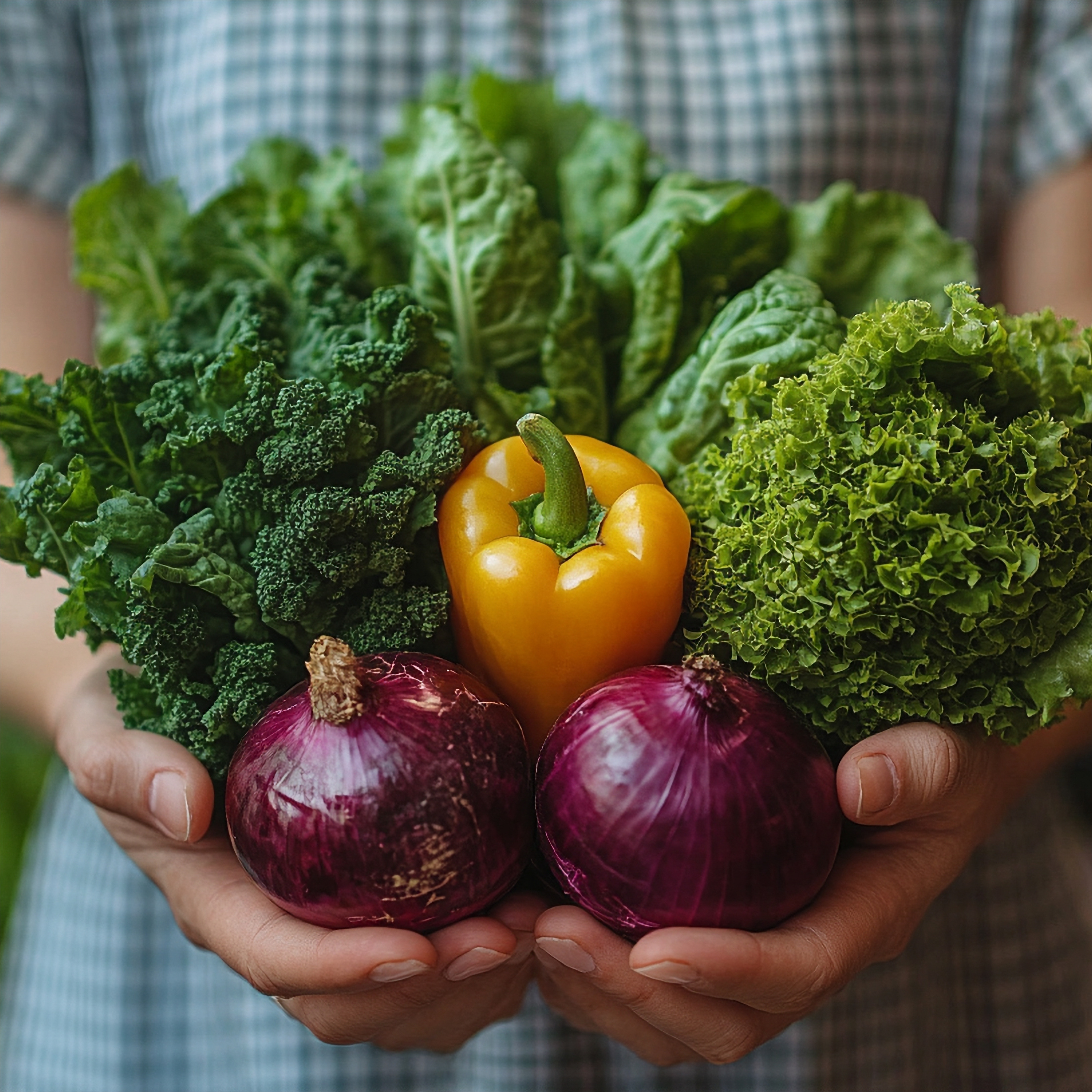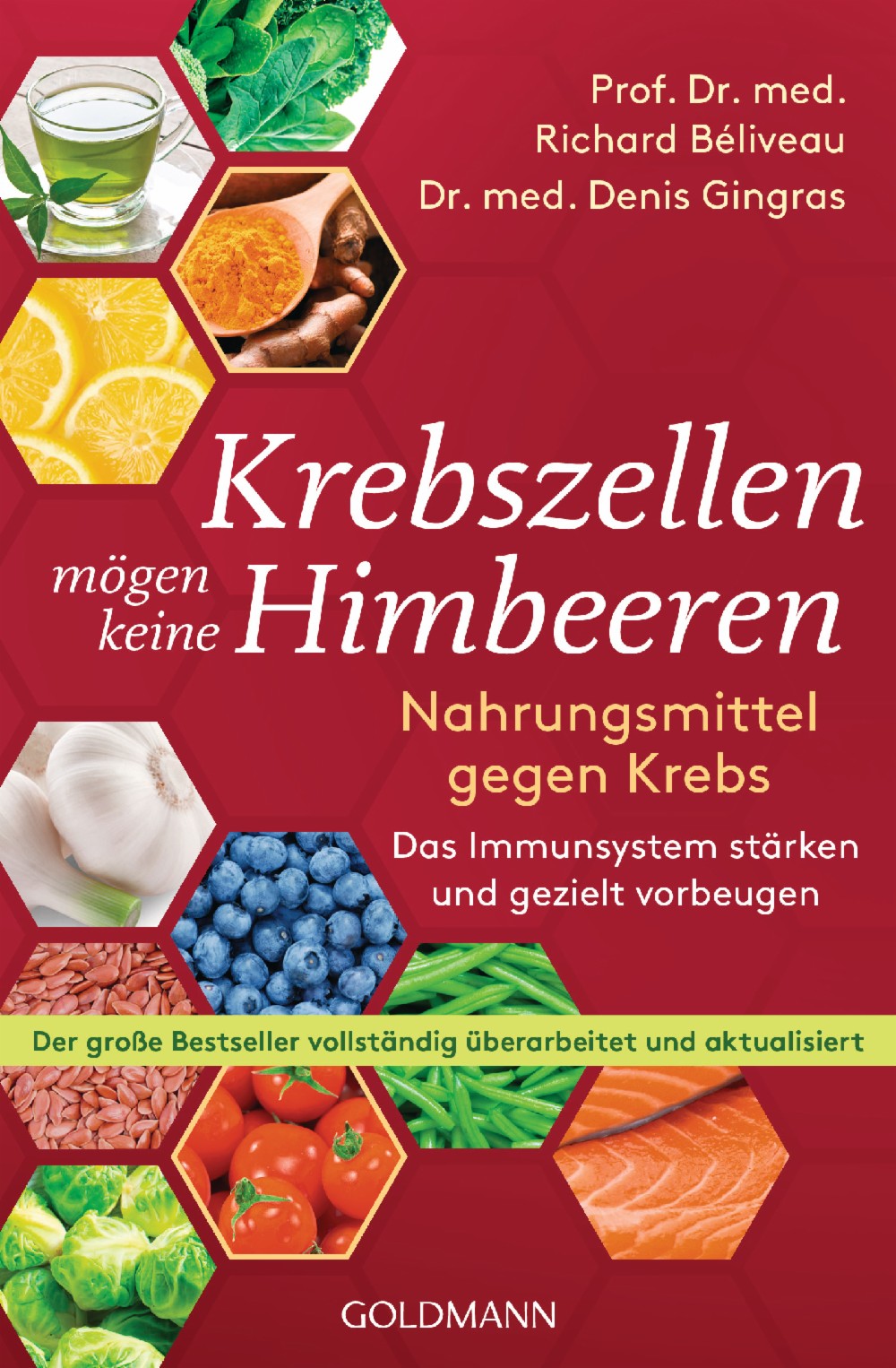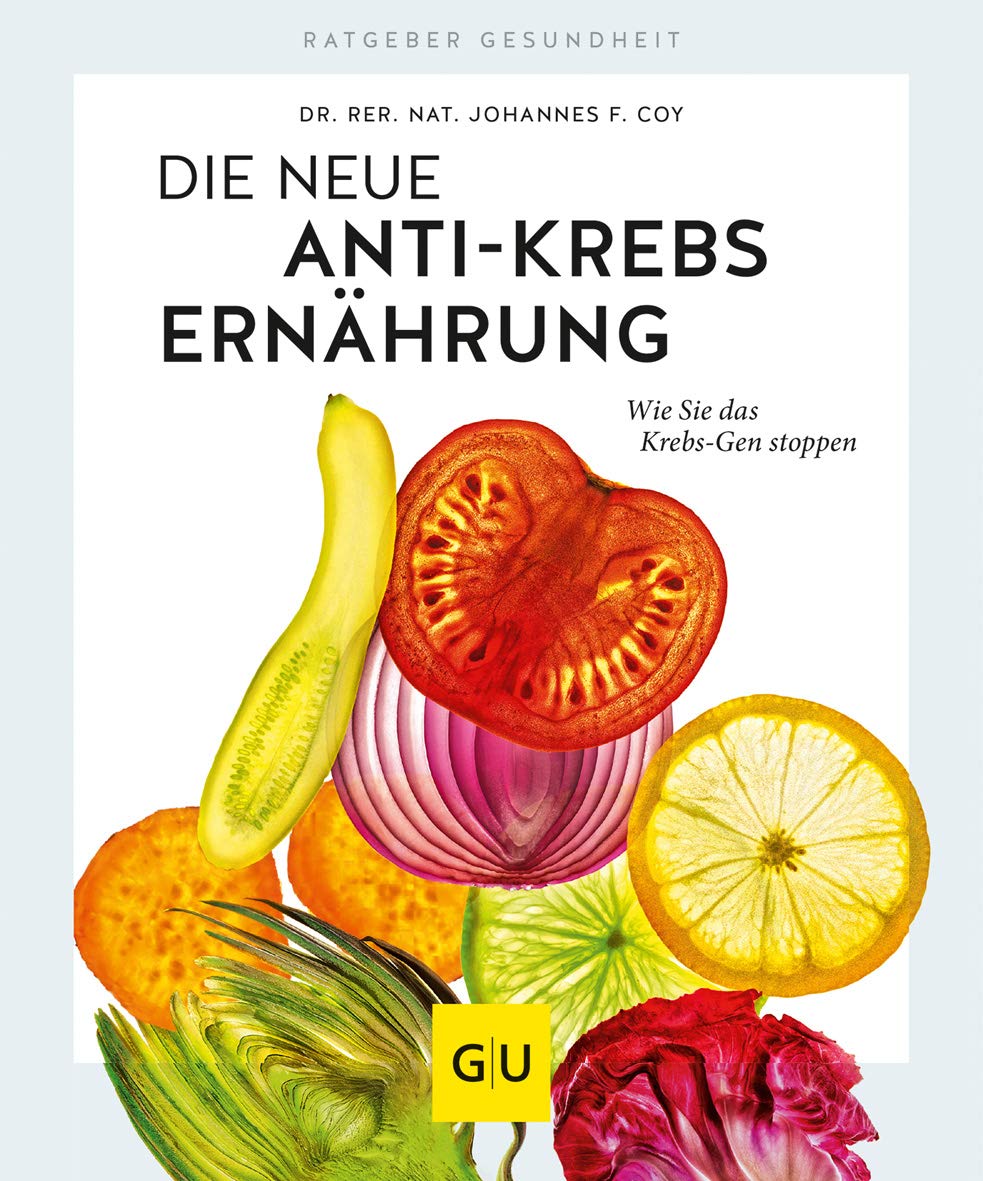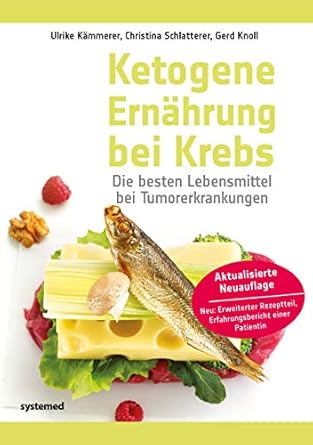
Anti-cancer diet:
Introduction, scientific principles and practical implementation
Introduction to the anti-cancer diet: what is it and why is it important?
The anti-cancer diet is a nutritional approach specifically aimed at reducing the risk of developing cancer and improving the well-being of cancer patients. This diet is based on scientific evidence that shows that certain foods have antioxidant, anti-inflammatory and immune-boosting properties that can help prevent and fight cancer.
Why is the anti-cancer diet important?
- Risk reduction: According to the World Health Organisation (WHO), up to 30% of all cancers can be prevented by a healthy diet, physical activity and avoiding tobacco.
- Supporting treatment: Certain foods can improve the effectiveness of cancer treatments and reduce side effects.
- Strengthening the immune system: A balanced diet can strengthen the immune system and help the body to fight cancer cells more effectively.
- Quality of life: A healthy diet contributes to general quality of life and well-being, which is particularly important for cancer patients.
By consciously eating fruit, vegetables, wholemeal products and other healthy foods, the anti-cancer diet can make a significant contribution to promoting health. In the following sections, we will take a closer look at the scientific basis of this diet and provide you with practical tips and recipes for integrating the anti-cancer diet into your everyday life.
"Let food be thy medicine and medicine be thy food." - Hippocrates
Stay tuned to learn more about the impressive benefits and implementation of the anti-cancer diet.
Scientific basis: How diet can influence cancer risks
Research clearly shows that diet plays a central role in the prevention of cancer. A large number of studies have shown that certain foods and nutrients can reduce the risk of developing cancer, while others increase the risk.
Antioxidants and their role
Antioxidants such as vitamin C, vitamin E and beta-carotene are known for their ability to neutralise free radicals. Free radicals are unstable molecules that can cause cell damage and increase the risk of cancer. A diet rich in fruit and vegetables provides an abundance of these protective substances.
Anti-inflammatory foods
Chronic inflammation is another factor that can contribute to the development of cancer. Foods such as berries, turmeric and oily fish (rich in omega-3 fatty acids) have powerful anti-inflammatory properties. These foods can help reduce the risk of inflammation and therefore lower the risk of cancer.
Fibre and digestive health
A high-fibre diet not only supports digestive health, but can also reduce the risk of bowel cancer. Wholemeal products, pulses and vegetables are excellent sources of fibre. They promote bowel movement and help to remove potentially carcinogenic substances.
Phytochemicals: the secret weapon
Phytochemicals are bioactive compounds in plants that have been shown to have anti-cancer properties. Examples include sulforaphane in broccoli, lycopene in tomatoes and flavonoids in citrus fruits. These compounds support various mechanisms in the body that fight cancer cells or inhibit their growth.
Statistical support
According to a study by the American Institute for Cancer Research (AICR), a healthy diet could reduce the risk of cancer by up to 30%. These figures emphasise the importance of a balanced diet as a preventive measure.
The scientific consensus is clear: a consciously chosen diet can make a powerful contribution to cancer prevention. By integrating antioxidant-rich, anti-inflammatory and fibre-rich foods into your diet, you can actively contribute to your own health and well-being.
Important foods in the anti-cancer diet: fruit, vegetables, wholemeal products and more
One of the most fundamental components of the anti-cancer diet is the foods that are consumed on a daily basis. These should be rich in nutrients, antioxidants and fibre.
Here are some of the most important foods that should be included in such a diet:
Fruit and vegetables
Fruit and vegetables are at the heart of the anti-cancer diet. They are rich in vitamins, minerals and antioxidants that can strengthen the immune system and reduce the risk of cancer. Berries, broccoli, spinach and tomatoes are particularly recommended. Berries contain flavonoids, which have an anti-inflammatory effect, while broccoli provides sulforaphane, a compound with anti-cancer properties.
Wholemeal products
Whole grains are an excellent source of fibre, which not only promotes digestive health but can also reduce the risk of certain cancers, such as bowel cancer. Examples of whole grain foods include oatmeal, brown rice and wholemeal bread. These foods help to keep blood sugar levels stable and provide long-lasting energy.
Pulses
Pulses such as beans, lentils and chickpeas are rich in protein and fibre. They also contain phytochemicals that have anti-cancer properties. Studies have shown that regular consumption of pulses can reduce the risk of stomach and bowel cancer.
Fatty fish
Fatty fish such as salmon, mackerel and sardines are rich in omega-3 fatty acids, which have anti-inflammatory properties and can reduce the risk of cancer. These fats also support heart health and general wellbeing.
Nuts and seeds
Nuts and seeds are little powerhouses full of healthy fats, proteins and antioxidants. Walnuts and flaxseeds are particularly noteworthy as they contain high amounts of omega-3 fatty acids and anti-cancer compounds.
By incorporating these nutrient-rich foods into your daily diet, you can actively contribute to cancer prevention while promoting your overall health and well-being.
Sample recipes and meal plans for the anti-cancer diet
Implementing the anti-cancer diet into your everyday life can be made easier with specific sample recipes and meal plans. Here are some delicious and nutritious recipes that can be seamlessly integrated into your diet while adhering to the principles of the anti-cancer diet.
Breakfast: Oatmeal with berries and nuts
- Ingredients: Cup oatmeal, 1 cup almond milk, 1/2 cup mixed berries (blueberries, raspberries), 1 tbsp flaxseed, 1 tbsp chopped walnuts
- Preparation: Heat the rolled oats and almond milk in a pan and simmer, stirring constantly, until a creamy consistency is achieved. Add the berries, linseed and walnuts and mix well.
This breakfast is rich in fibre, antioxidants and omega-3 fatty acids, all of which can help prevent cancer.
Lunch: Quinoa salad with vegetables and avocado
- Ingredients: 1 cup cooked quinoa, 1 cup diced cucumber, 1 cup diced pepper, 1/2 avocado (sliced), 1 handful spinach, 1 tbsp olive oil, juice of half a lemon, salt and pepper to taste
- Preparation: Mix all the ingredients together in a large bowl and drizzle with olive oil and lemon juice. Season with salt and pepper to taste.
This quinoa salad is an excellent source of vegetable protein, vitamins and healthy fats.
Dinner: Grilled salmon with broccoli and sweet potatoes
- Ingredients: 200g salmon fillet, 1 head of broccoli (cut into florets), 1 large sweet potato (sliced), 1 tbsp olive oil, 1 tsp turmeric, salt and pepper to taste
- Preparation: Season the salmon with olive oil, turmeric, salt and pepper and bake in the oven at 200°C for about 20 minutes. Season the broccoli and sweet potatoes with a little olive oil, salt and pepper and roast in the oven for 25-30 minutes.
This dish provides valuable omega-3 fatty acids, fibre and antioxidant compounds such as sulforaphane from the broccoli.
Snack: Hummus with vegetable sticks
- Ingredients: 1 cup chickpeas (cooked), 2 tbsp tahini, juice of half a lemon, 1 clove of garlic, salt and pepper to taste, vegetable sticks (carrots, celery, peppers)
- Preparation: Place all the ingredients in a blender and puree until smooth. Serve with vegetable sticks.
Hummus is a high-protein and high-fibre snack option that is perfect for between meals.
By incorporating these recipes into your daily diet, you can not only promote your health, but also actively contribute to cancer prevention.
Testimonials and case studies: successes and challenges
Integrating the anti-cancer diet into your daily routine can bring both impressive successes and challenges. Here are some inspiring testimonials and case studies that highlight the effectiveness and practical aspects of this diet.
[
Success stories from cancer patients
Many cancer patients report positive results after switching to an anti-cancer diet. For example, one patient suffering from prostate cancer saw an improvement in his overall health by regularly consuming antioxidant-rich foods such as berries and leafy green vegetables. He noticed increased energy and improved tolerance to his cancer treatments.
Case study: The role of diet in cancer prevention
A case study published in the Journal of Clinical Nutrition examined the effects of a plant-based diet on cancer risk in a group of 100 participants. The study found that participants who followed a strict anti-cancer diet had a 27% lower risk of developing certain types of cancer. This emphasises the importance of a balanced diet in cancer prevention.
Challenges in implementation
Despite the many benefits, there are also challenges in implementing the anti-cancer diet. Some patients report difficulties in changing their eating habits and avoiding foods high in sugar and fat. In addition, sourcing fresh, organic food in certain regions can be logistically and financially challenging.
Strategies for overcoming hurdles
To overcome these challenges, it is helpful to make gradual changes and seek support from dietitians or self-help groups. Planning and preparing meals and visiting weekly markets can also help to make the process easier.
These testimonials and case studies show that the anti-cancer diet can make a valuable contribution to cancer prevention and treatment, even if it does come with some challenges.
Tips for long-term implementation and integration of the anti-cancer diet into everyday life
Successfully integrating the anti-cancer diet into everyday life requires planning, motivation and practical strategies. Here are some helpful tips for implementing this diet in the long term:
- Plan and prepare meals
One of the most effective ways to stick to the anti-cancer diet is to plan and prepare meals. Create weekly meal plans and prepare meals in advance. This saves time and reduces the temptation to choose unhealthy options. - Create a shopping list
Create a detailed shopping list with all the ingredients you need for the week. Make sure to choose fresh, organic and seasonal foods to maximise nutrient intake. - Keep healthy snacks to hand
Keep healthy snacks such as nuts, seeds and fresh fruit to hand to avoid cravings. These snacks are not only nutritious, but also convenient for travelling. - Seek support
Switching to a new diet can be challenging. Seek support from family, friends or support groups. A nutritionist can also provide valuable tips and personalised advice. - Document your progress
Document your progress and successes. A food diary can help you stay motivated and recognise possible improvements or challenges. - Maintain flexibility
Be flexible and allow yourself occasional exceptions. The goal is a long-term and sustainable dietary change that is not complicated by strict rules. Flexibility helps to maintain the diet in the long term.
By applying these tips, integrating the anti-cancer diet into your everyday life becomes easier and more sustainable. In this way, you can not only improve your health, but also actively contribute to cancer prevention.
List of sources
- https://cancer-code-europe.iarc.fr/index.php/de/12-moeglichkeiten/ernaehrung/968-gibt-es-eine-spezielle-anti-krebs-diaet
- https://www.focus.de/gesundheit/ratgeber/krebs/die-anti-krebs-ernaehrung-was-sie-essen-muessen-um-ihr-tumor-risiko-zu-senken_id_43089789.html
- https://www.krebsgesellschaftnrw.de/komplementarmethoden/ernaehrung-bei-krebs/krebsdiaeten/anti-krebs-ernaehrung/
- https://shop.gu.de/products/50610-die-neue-antikrebsernaehrung
- https://www.ndr.de/ratgeber/gesundheit/Ernaehrung-bei-Krebs-Mythen-und-Fakten,krebsernaehrung100.html
- https://www.amazon.de/Die-Anti-Krebs-Di%C3%A4t-Daniel-W-Nixon/dp/3430171547
- https://www.infranken.de/ratgeber/gesundheit/ernaehrung/anti-krebs-diaet-ernaehrung-zucker-art-5210121
- https://www.focus.de/gesundheit/ratgeber/krebs/therapie/ernaehrung-gegen-den-krebs-mehr-fett-weniger-zucker-die-anti-krebs-diaet-staerkt-patienten-und-hungert-tumore-aus_id_7351909.html
- https://www.helios-gesundheit.de/magazin/news/02/lebensmittel-gegen-krebs/
- https://www.spektrum.de/lexikon/ernaehrung/anti-krebs-diaeten/569



